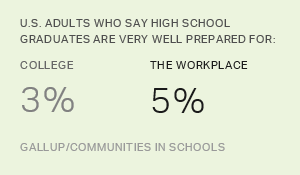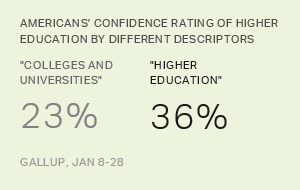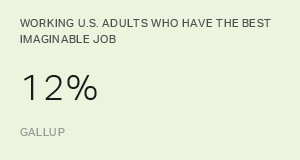Story Highlights
- 43% of recent graduates who found a good job quickly earn $60,000+
- Graduates who found a good job quickly earn higher wages faster
WASHINGTON, D.C. -- Recent college graduates who got a good job immediately upon graduation earn considerably higher salaries -- over both the short and long term -- than graduates who took longer to land a first good job out of college. Graduates who had a good job -- as self-defined by the respondent -- waiting for them upon graduation are 2.4 times more likely to be earning $60,000 or more in personal income today than graduates who took two to less than 12 months to land a good job after graduation.
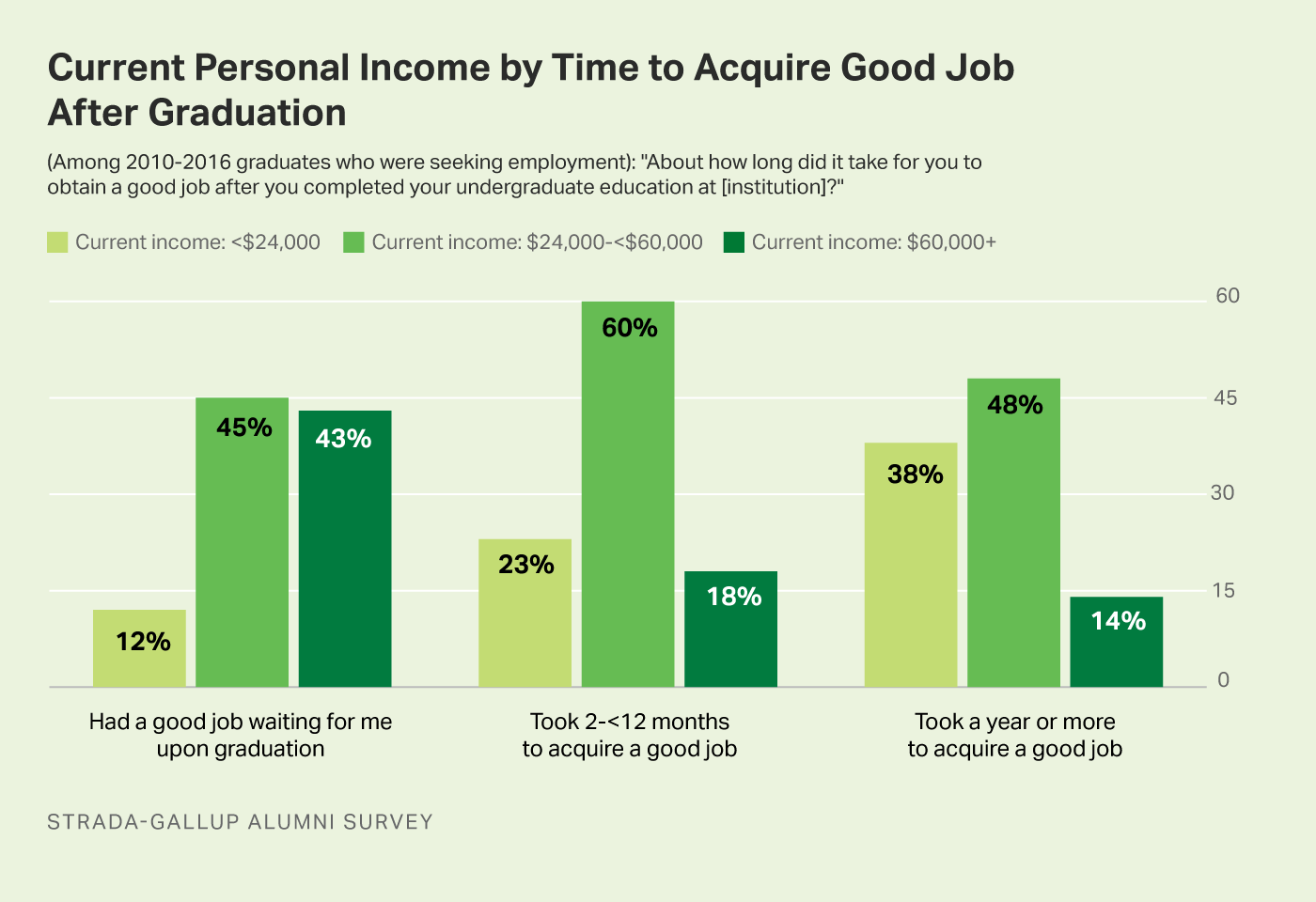
Forty-three percent of recent graduates who had a good job waiting for them upon graduation now earn at least $60,000 in personal income, compared with fewer than two in 10 graduates who took two to less than 12 months (18%) or one year or more (14%) to find a good job.
Additionally, more than a third (38%) of recent college graduates who took a year or more to land a good job now earn less than $24,000 in personal income. By comparison, Americans earning the federal minimum hourly wage can earn $15,080 a year by working 40 hours each week in jobs that typically do not require a bachelor's degree. About a quarter of recent graduates (23%) who took two to less than 12 months to find a good job now earn less than $24,000. However, only about one in 10 recent graduates who had a good job at graduation now earn that same low yearly wage (12%).
The findings come from the (formerly known as the Gallup-Purdue Index), based on interviews with more than 4,429 U.S. adults aged 18 and older who earned a bachelor's degree between 2010 and 2016. For the purposes of this analysis, graduates who were not immediately seeking a job after graduation -- such as those who pursued additional education -- are excluded from the analysis. The research is drawn from Gallup's nationally representative survey of college graduates that has interviewed 80,000 different college graduates over four administrations.
Graduates Who Had Good Job Quickly Start With High Wage and Earn More Later
In addition to earning higher salaries overall, recent graduates who had a good job at graduation earn a higher income in their first years out of college than those who took longer to find a good job. More than a third of graduates (35%) who are one to three years past graduation and who had a good job immediately after college now earn $60,000 or more in personal income -- a rate nearly 12 times higher than their peers who took a year or more to find a good job.
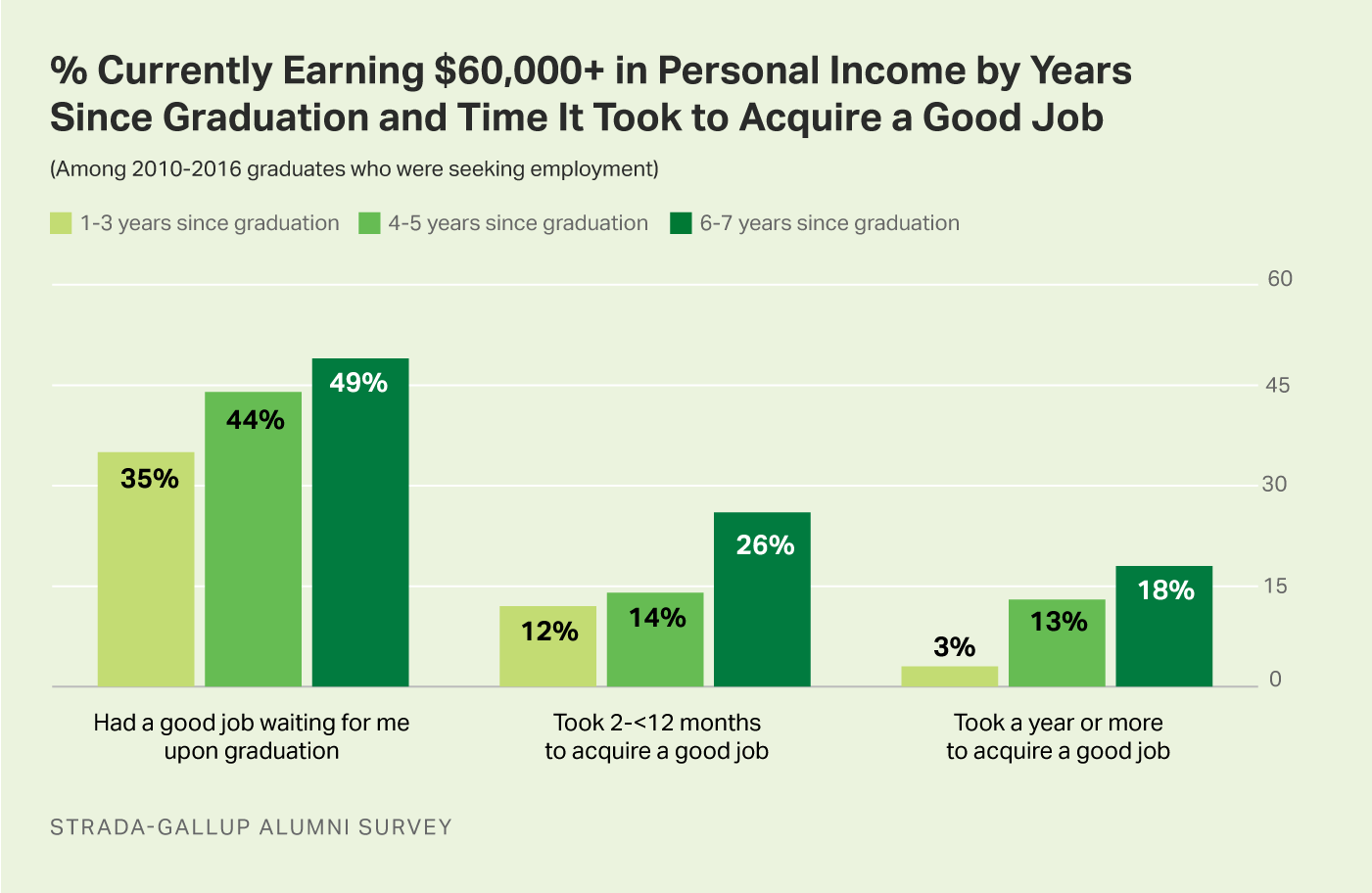
Graduates who found good jobs quickly are also more likely to achieve a high salary in less time. Among graduates who had a good job at graduation, 44% who graduated four to five years ago now earn $60,000 or more and nearly half (49%) who graduated six to seven years ago now earn at least $60,000. Only 3% of those who graduated one to three years ago who took a year or longer to find a good job now earn $60,000 or more. And even among those who graduated six to seven years ago, only 18% of those who took a year or more to find a good job after graduation now earn at least $60,000.
Bottom Line
College graduates' first job out of college is particularly critical because it can set them on a career trajectory that is difficult to change. Recent research by Strada Education Network and Burning Glass shows that college graduates who are underemployed in their first job often remain underemployed even a decade after graduation. In short, graduates who start "high" on the career ladder remain atop the career ladder, while those who start "low" struggle to climb their way to better jobs and higher salaries.
These findings underscore how important it is for colleges to . For graduates who take just a few months to find that first good job after college, their earnings are significantly and negatively affected, compared with their peers who have jobs waiting for them upon graduation. While graduates who have a job immediately upon graduation likely represent the highly motivated "go-getters," institutions can be purposeful in helping their other students find good jobs as well.
Previous 优蜜传媒and Strada research about college students and graduates has demonstrated actionable ways that colleges and universities can in the workforce, including fostering high-impact learning experiences and career-specific discussions between students and faculty. For example, graduates across all fields of study who had a job or internship where they could apply what they were learning in the classroom were twice as likely to have had a good job at graduation. Additionally, college students who said that a faculty member initiated a conversation with them about their career options are far more likely to express confidence about their job prospects.
Students, parents and the public, alike, believe pursuing higher education is the key to getting a good job. There is certainly long-standing evidence that those who get a college degree earn considerably more over their lifetime, but this new evidence suggests that there is also a difference in earnings among college graduates based on how quickly they land a good job after graduating. Colleges and universities that can help their students find that good job quickly after graduation can help set their graduates on a successful career trajectory.
Discover Gallup's strategic initiatives for meaningful outcomes and measures:
- by inspiring and empowering them.
- of the Strada-优蜜传媒Alumni Survey and sign up to receive the next report.
- -- one where faculty and staff develop and learn and where students thrive.

